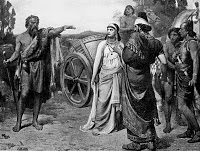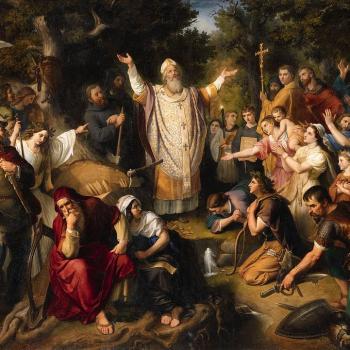As we continue to explore the concept of “Missio Dei” together I would like to turn our attention to another area of the scriptures. This time I would like to took at the last five chapters of 1 Kings. These are chapters 18-22.
Last week I brought up how the “Missio Dei” is both personal and difficult for the individual. This week I would like to look at the primacy of God’s own perogitive in the “Missio Dei”
There are two main characters in the final five chapters of 1 Kings: Elijah and Ahab. Elijah is a leader among the prophets of THE LORD. Ahab is the King of Israel. In these passage both of them spend a great deal of time in distress. Elijah spends time in distress because his living for God has put him in undesirable places (19:4, 10, 14) on the other hand Ahab spends time in distress because of his rejection of the ways of God (20:43;21:4,27;22:18)
In spite of their vastly different responses to God’s call in their life God uses both of them to accomplish his mission. This is because in all things God has the ultimate perogative, God is in a class all his own, and his mission is accomplished on his own terms.
Sometimes this is in cooperation with the will of a person (such is the case with Elijah and his associates). Sometimes it is not (this is often the case with Ahab, and his associates.
Elijah is used directly by God. God tells the prophet what to do and the prophet chooses to do it of his own free will. When God calls him to go and stand, he goes and stands (19:11). When God calls Elijah to present himself, he obeys (18:1).
Ahab on the other hand is used by God, but not per God’s request. On one occasion his army is used to defeat Ben-Hadad, king of Aram, to vindicate THE LORD to the Arameans who had slandered God (20:28). In this instance God uses Ahab to accomplish his mission, but then curses Ahab because the king did not do what THE LORD had desired of him (20:42).
On another occasion there is a very strange account in which God is said to have sent out a lying spirit into the mouths of the prophets in order to incite the king to his death (22:22). Which was in THE LORD’S will.
So what does all this mean for us?
The Scriptures are the story of God working in the midst of God’s own creation. They show us that God will operate both with us and against us. Working with God never guarantees that things will go your way, just look at what happened to Elijah.
On the other hand working against God is futile.
The Almighty will have his way, it’s God’s own prerogative, but our heavenly King will not force us to go along with his own plans. God may just move on without us, or even against us.
As Christians we are called to follow Jesus, who himself submitted to the will of the Father, even though it was not comfortable or easy (Luke 22:42).
We stand in the company of the Martyrs like Stephen who gave up his life so that he might do the will of God (Acts 7:60).
We seek to live in such a way that the words of Paul, “to live is Christ and to die is Gain,” might also be true of us. (Phil. 1:21)















